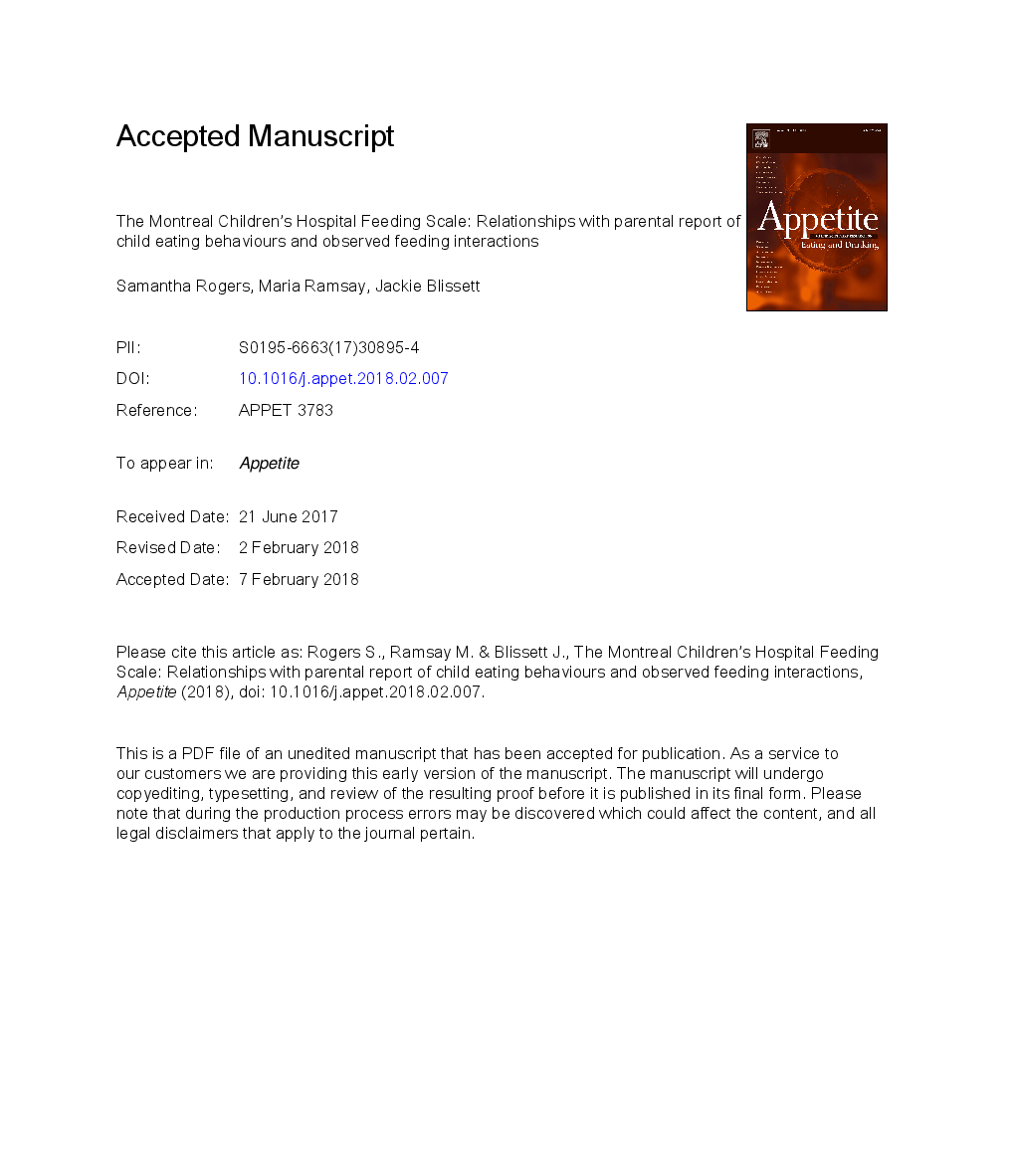ترجمه فارسی عنوان مقاله
مقیاس تغذیه بیمارستان کودکان مونترال: ارتباط با گزارش والدین رفتارهای تغذیه ای کودک و تعاملات خوراکی مشاهده شده
عنوان انگلیسی
The Montreal Childrenâs Hospital Feeding Scale: Relationships with parental report of child eating behaviours and observed feeding interactions
| کد مقاله | سال انتشار | تعداد صفحات مقاله انگلیسی |
|---|---|---|
| 131463 | 2018 | 29 صفحه PDF |
منبع

Publisher : Elsevier - Science Direct (الزویر - ساینس دایرکت)
Journal : Appetite, Volume 125, 1 June 2018, Pages 201-209

